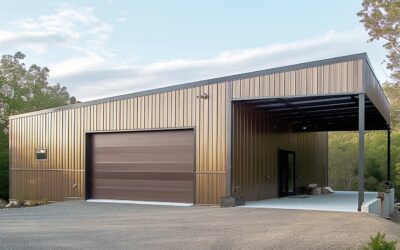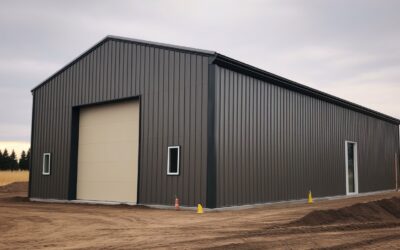Plowing Ahead: The Role of Steel in Modern Farming
In the first light of dawn, a farmer steps into a sturdy, efficient piece of machinery. It’s made of steel, a powerful and durable alloy that stands as a backbone to our modern world. These first moments of a farmer’s day paint a clear picture of the pivotal role of steel in modern farming. But, what exactly does this role entail? How has steel shaped contemporary farming practices?
The Revolution of Steel in Agriculture
Farming has been revolutionized by numerous technological advancements, and at the heart of this revolution, one finds steel. Stable, strong, and resistant to weather changes, steel is a key element that contributes significantly to the agricultural industry. It’s present in everything from farming machinery to irrigation systems, storage units, and durable farm buildings.
Indeed, the steel impact on Canadian farming and other parts of the world has been profound and transformative.
Farming Equipment: Rethinking Efficiency and Durability
Have you ever considered how much of a farm vehicle’s framework is made of steel? Look at any tractor, harvester, or any other mechanized farming tool, and you’ll see precision engineered steel components. These pieces are not only structurally crucial, but they also offer resistance to wear and tear, enabling farmers to work more effectively and efficiently.
Many machines also utilize high-strength steel, which stays tough under extreme conditions, allowing for more powerful and efficient equipment. Its impact on productivity is colossal and has drastically improved the capabilities of modern farming practices.
Storage and Building Structures
Farming is not solely about growing and harvesting crops or rearing animals. A central part of it involves storage and building structures. For these, steel has become an indispensable material due to its high durability and weather resistance.
One prime example is the storage shed. These structures need to withstand harsh weather conditions, protect expensive machinery, and sometimes, even shelter livestock. Steel’s inherent qualities make it the go-to choice for many farmers.
Moreover, steel is a sustainable and recyclable material aligning perfectly with the green principles many farmers now adhere to.
Impact and Challenges
While the role of steel in modern farming is primarily positive, there are associated costs and challenges. Prices can fluctuate, and the accessibility of quality steel can be a concern in certain regions. Despite these issues, the benefits of steel far outweigh these challenges, making it a staple in the agricultural industry.
The Future of Steel in Farming
What does the future hold for the role of steel in agriculture? As more farmers become aware of the environmental impacts of their practices and the benefits of sustainable farming, it’s likely that steel, a recyclable and durable material, will continue to play an integral role.
In fact, the U.S. Department of Agriculture consistently emphasizes the importance of innovative and sustainable methods in farming, indicating a bright future for the use of steel in this industry.
Conclusion
From durable machinery and storage facilities to environmentally conscious practices, the pivotal role of steel in modern farming continues to underpin agricultural advancement. The journey of steel in farming is far from over. As technological enhancements and green policies evolve, so will the relevance and importance of steel, reinforcing its continual impact on modern agriculture.
Indeed, as we plow ahead into the future of farming, the alliance of agriculture and steel will remain a telling tale of innovation, sustainability, and resiliency. The role of steel in farming is not merely a tale of progress; it’s a reflection of the relentless human spirit to grow, innovate, and navigate challenges in the pursuit of a more efficient and sustainable world.





